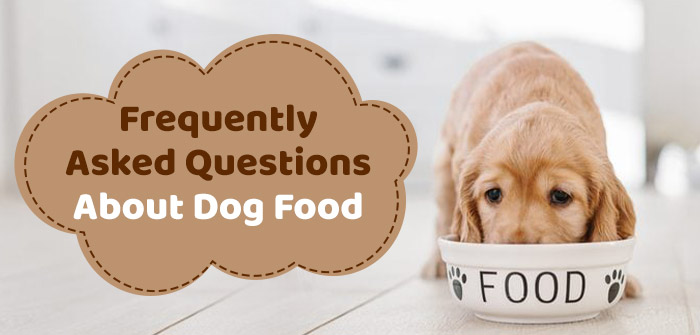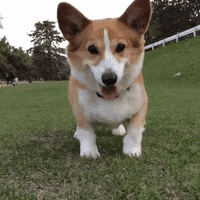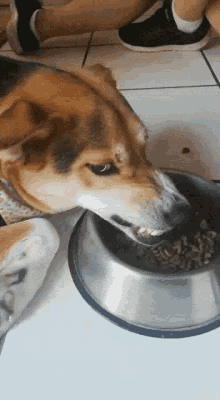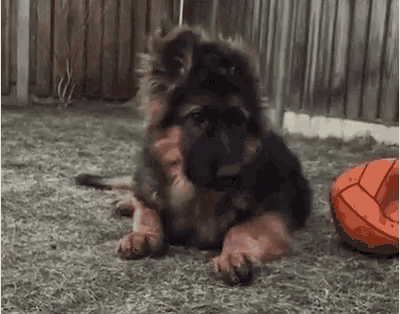Frequently Asked Questions About Dog Food
Many pet parents struggle with finding answers to some of the most common dog food questions. To help them with their research, we at VetSupply have listed below a few of the questions and their researched answers.

We have used our best resources to compile these answers for you. Let’s begin with the question-answer about dog food.
Answering the Most Common Dog Food Questions
Let’s now see the answers one-by-one and understand things in detail regarding your dog food concerns:
1. Why do dogs get so excited for human food?

Almost all dogs love food, as their entire life circles around eating, sleeping, and playing around, and all dogs do the same. Human food offers a variety of flavours and choices which they find better than their daily mundane diet. So they get excited to have from human food.
Dogs are born scavengers and they happily scavenge on leftover human food. Dogs love having meat-based food, which is their main protein source. The smell of human food prompts dogs to sometimes snatch food from humans.
2. Is it harmful for cats to eat dog food?
Yes, because both species are different. With this difference, their nutrient requirements are also different from each other.

Commercial dog foods are more heavily loaded with grains and starch than regular cat food and hence your cat may struggle to digest such food. Cat species are generally obligate carnivores that mainly depend on a diet rich in meat protein, fats and amino acids, than canines. And commercial dog foods include less meat, fat and essential amino acids as compared to commercially prepared cat food.
The possible long-term effects of cat feeding on dog food include signs of illness, lethargy, and poor heart health. And in the worst cases, this practice can cause Kidney disease and Urinary Tract Infections in cats.
3. What is the best dry dog food?

Feeding only one type of dry food can lead to an excess of certain nutrients only and the dog may lack other essential nutrients. A combination of dry food can help meet the nutritional needs of your dog.
- Hill’s Prescription Diet t/d Dental Care with Chicken Dry Dog Food
- Hill’s Prescription Diet Dog i/d Digestive Care Chicken Dry Dog Food
- Advance Triple Action Dental Care Adult Small Breed Dog Dry Food
4. My dog doesn’t like dog food at all. What can I add to dog food to make them eat it?

The first thing that needs to be done is to find out the reason why your dog does not like dog food. The possibility may be the food is not appealing to your dog’s instincts or is not flavourful. Other possible causes may include an underlying illness, bodily discomfort like joint pain, or just simply due to toothache. Consult a vet if you find any of these causes with your dog.
If your dog has no such health issues, and then better try switching your dog food to a different brand with different ingredients.
Some dogs are picky and fussy eaters. Consider mixing meat – sliced, diced or minced, eggs, tuna or salmon fish, or bone or chicken broth to your dog’s regular food. Try any of these ideas to help solve your problem.
5. What foods are bad for dogs?

Keep the rule as whatever you consider is not good for your dog avoid feeding it to them. And remember, dogs are from the Carnivora family and are more inclined towards flesh and meat. Any form of chocolate, onions, grapes, or raisins must never be fed to a dog. Avocado pits and skin are harmful to dogs; hence avoid feeding it to your dog.
Many foods like garlic are ok when fed in moderate quantity. All sugary and junk food should be avoided and must never be fed as a treat. Practice caution with dog food stuffed excessively with grains, starch and fillers. Also never buy cheap dog foods because they are made with unhealthy and substandard ingredients.
Buy superior quality dog foods with approved healthy ingredients from our pet’s food section on VetSupply.
Vegetables Dogs Can or Can’t Eat
Read Now!!
6. What’s the difference between cat food and dog food?
Both cats and dogs are from the Carnivora family. Cats being obligate carnivores and dogs being omnivores have similarities in the type of food they consume but differ in the quantity of foods that should be fed.

The significant difference between cat food and dog food is the protein content. The ratio of protein present in cat food is higher than in dog food and it is vital for a cat’s overall health and growth.
Dog food has less fat content than that of cat food. The reason is the metabolism process in dogs is more active than in cats. Because the cats are from the obligate carnivorous family, their metabolism can convert only fats into energy, whereas the dog’s metabolism can transform both fats and carbohydrates into energy.
Cats require more Taurine, an essential amino acid, than dogs. Animal meat is the natural source of Taurine.

